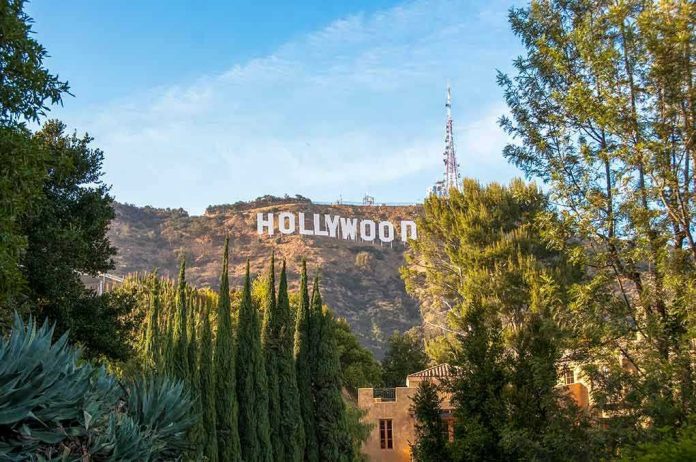
A 100% tariff on foreign films threatens to reshape Hollywood, sparking debate over its future.
Story Overview
- President Trump introduces a 100% tariff on all foreign-made films, citing national security.
- Hollywood insiders warn the move could destabilize the industry and provoke trade disputes.
- The unprecedented tariff aims to revive American film production and protect jobs.
- Critics argue it may lead to increased production costs and reduced cultural exchange.
Trump’s Bold Move to Revive Hollywood
On September 29, 2025, President Donald Trump announced a 100% tariff on foreign-produced films. This decisive action aims to address the declining U.S. film industry, which has seen a 40% drop in domestic production over the last decade. Trump argues that the tariff is essential for restoring America’s dominance in film, protecting jobs, and safeguarding national security.
Hollywood studios, however, rely heavily on international markets and cross-border productions. The film industry insiders have expressed concern that this policy could destabilize the current business model. While Trump frames the move as a necessary protectionist measure, critics warn it could trigger international trade disputes, affecting Hollywood’s global footprint.
Industry Concerns and Global Implications
Experts warn that the tariff could have major consequences for Hollywood’s global business model. The policy challenges the industry’s reliance on foreign markets, which accounts for a significant portion of revenue. The potential for increased costs and reduced access to diverse content raises concerns among studios and audiences alike.
Foreign governments, particularly those offering incentives to attract U.S. productions, may retaliate with their own measures, further complicating international relations. The tariff’s implementation could set a precedent for cultural protectionism, affecting other sectors like music and streaming, and potentially accelerating the fragmentation of the global entertainment market.
Trump’s Nationalistic Vision and Its Challenges
President Trump’s move reflects a broader trend of economic nationalism and cultural protectionism. While supporters argue that the tariff is necessary to protect American jobs and culture, critics warn of potential economic self-harm. They highlight risks such as higher production costs, reduced global competitiveness, and loss of creative diversity.
Hollywood studios are now reviewing production plans and international partnerships in light of this new policy. As the industry grapples with these changes, the long-term effects on the U.S. and global film markets remain uncertain, with legal and diplomatic challenges anticipated.
Trump tries to save Hollywood with 100% tariff on foreign-produced films, but insiders say industry is 'dying'https://t.co/MbdcQYER3b
— Ruth Abbitt (@RuthAbbitt) September 30, 2025
Despite the controversy, the administration is pressing forward, with U.S. agencies like the Department of Commerce tasked with enforcing the tariff. The unfolding situation will test the resilience of Hollywood and the effectiveness of protectionist policies in an increasingly globalized world.







